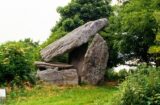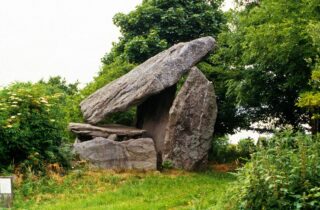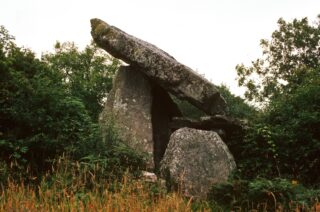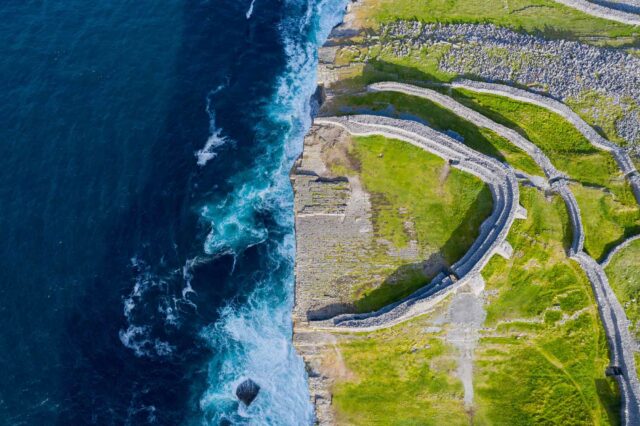Fógra
WARNING: It should be noted that these sites are unguided and a level of care and caution should be maintained during all stages of your visit. The Office Of Public Works (OPW) will not be held responsible for any damages, injuries, or losses that occur
Kilmogue Portal Tomb
This megalithic tomb, a portal tomb (aka dolmen) is found on the south-eastern slopes of Carricktriss Gorse hill, approximately 7km north-east of Mullinavat. Various versions of names are associated with this portal tomb, ‘Leac an Scáil’, ‘Lachan Scahl’ and ‘Leacán Scoil’ – Rock of the Hero, Great Altar Stone and The Hero’s Stone. Known locally as Leac an Scáil, at 5 metres from base to top of capstone, it is Ireland’s tallest dolmen. Less than 200 portal dolmen remain in Ireland, most famous is Poulnabrone in Co. Clare. Numerous names are associated with these historic sites, including Leaba Diarmuid agus Gráinne, Giants Grave, and Druids Altar. Portal tombs were built and used between 3800BCE and 3000 BCE.
The portal tomb is one of four types of megalithic tombs found throughout the country with the others being court cairns, passage tombs and wedge tombs. Few have been extensively excavated with artefacts and human bone fragments found. The portal tomb is an exceptional monument to mark a burial site.
This portal tomb runs north-east to south-west, allowing it to face the sunrise of the summer solstice. The capstone, lower at the rear and higher at the front/entrance, rests on a lower roof-stone and two portal stones, and at its front a door-stone, all of which are granite with a quartz vein. The two portal stones form the entrance to a stone-lined inner chamber, possibly a burial site. The capstone at its widest is 5m by 3.2m, the lower roof stone 2.41m by 1.85m, the eastern portal stone is 3.59m high and its opposite is 3.55m tall. It is possible to still see traces of a cairn/stones on the east side of this monument. This cairn, possibly, would have covered much of what is seen today, up to the capstone. The remarkable feature of this portal tomb is its different appearance depending on the viewing angle, making Leac an Scáil a sculptural beauty.
Protect our Past - Click here to read about the importance of protecting our country’s unique heritage sites
This national monument is protected in accordance with the National Monuments Acts 1930 to 2014



